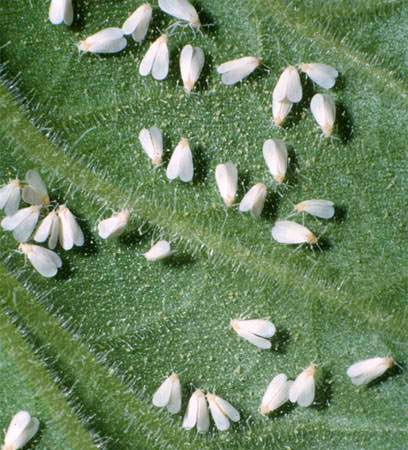Getting away from nasty chemicals is something more and more people want to do. There are safer methods to keep things like bugs and mold, mildew and other fungi plant predators in check is on fruit and vegetable plants. It doesn’t matter if you’re treating an indoor garden or one in the backyard, there’s a variety of ways to combat issues.
A lot of gardeners swear by neem oil – a safe, natural plant pest deterrent in use since the ancient days of India. This plant based pesticide is simply mixed with water and sprayed on, though you can buy it premixed from brands like Safer and Bonide. To make your own neem oil insecticide spray, mix 1/4 ounce per quart of water.
 Fresh out of neem oil? Locate some organic tobacco at a smoke shop. With some organic soap, you can whip up an elixer that is long proven to keep bugs and caterpillars at bay. This is a gardener’s trick that has been in use for many years. You’ll find the directions for making this natural pesticide in the second video below.
Fresh out of neem oil? Locate some organic tobacco at a smoke shop. With some organic soap, you can whip up an elixer that is long proven to keep bugs and caterpillars at bay. This is a gardener’s trick that has been in use for many years. You’ll find the directions for making this natural pesticide in the second video below.
The ingredient, pyrethrum, that is commonly found in natural plant pesticides you can buy at the store comes from the chrysanthemum flower. If you grow mums in your flower garden, the dried blooms offer you a free source of this insecticide. Boil 3.5 ounces (100 grams) of dried mum flowers for 20 minutes. Strain the infusion and pour it into a spray bottle. You can add some neem for an added booster. The concoction stores well without refrigeration for up to 2 months.
Diatomaceous earth is also harmful to plant pests. Some recipes say to mix it with water. Why bother? This method application doesn’t make much sense since spray nozzles easily plug. Simply thoroughly wet down your plants and dust them with diatomaceous earth. It will stick long enough to slice up any bugs or caterpillars that are present on your plants. Slice up? These soil particles have super sharp edges. Anything crawling over it will be harmed.
Chili peppers and garlic really shouldn’t be used on food plants. Something learned from deer repellent applications. Capsicum and garlic sprays meant to stop deer and rabbits from eating plants foul the taste of your fruits and vegetables, so don’t use any natural insecticide recipe that includes these ingredients.
Baking powder is a natural fungicide that works well at combating mold and mildews many gardeners are plagued with inside or outdoors. Other plant diseases like blight on tomatoes are also fungi issues brought on by cool weather and over abundant moisture. All these fungi-based plant problems can be eradicated with a simple spray tossed together with handy kitchen staples as ingredients. Follow the directions in the video below.